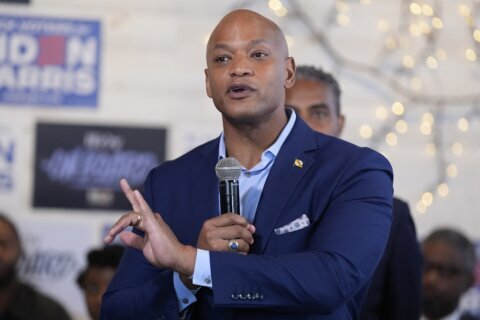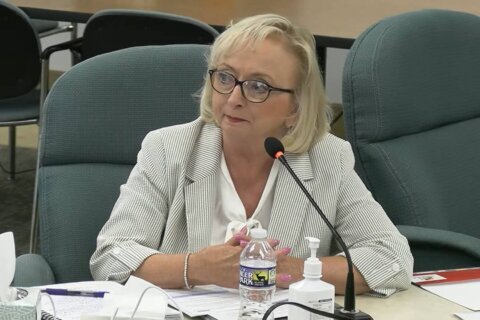ANNAPOLIS, Md. (AP) — Adults who testified they were sexually abused as children urged Maryland lawmakers on Thursday to end the state’s statute of limitations for when civil lawsuits can be filed against institutions related to child sexual abuse.
Dr. Frank Schindler, who testified he was sexually abused by a Catholic priest when he was a 5-year-old kindergartner in 1954, told legislators that the measure was “both a moral and a civil rights issue.”
“It will send a strong message to all survivors and their abusers that the gross violation of the basic right of children not to be abused will no longer be tolerated in Maryland no matter how powerful the source of that abuse,” said Schindler, who is now 73-year-old psychologist and a member of Maryland’s chapter of Survivors Network for those Abused by Priests.
Carolyn Surrick, who has testified about abuse she experienced at age 13 from two teachers at the Key School in Annapolis in the 1970s, told lawmakers at the hearing it wasn’t up to them to decide who should be held accountable.
“You just need to make it possible for us to have our day in court,” Surrick said.
Currently, people in Maryland who say they were sexually abused as children can’t sue once they reach the age of 38. The Maryland House has approved legislation in recent years that would have lifted that age limit, but it stalled in the state Senate.
This year, state Sen. Will Smith, who chairs the Senate Judicial Proceedings Committee, is sponsoring a bill that would end the age limit. He said in an interview that he’s confident the bill will pass this year but that the courts likely will have the final say.
“I’ve worked with the advocates since the summer, and I feel confident that we’ll produce a good product, but not absent some serious questions and some serious concerns,” Smith, a Democrat, said. “A lot of what will be the final outcome is going to be determined by the courts. I suspect that it will be challenged, if and when we pass the bill.”
Kathryn Robb, the executive director of Child USAdvocacy, a nonprofit that advocates for better laws to protect children, testified that 15 states have lifted statutes of limitations for child sexual abuse. Twenty-four have approved revival periods known as “lookback windows,” which are limited time frames during which accusers can sue, regardless of how long ago the alleged abuse occurred, Robb said.
The measure would include caps for damages. For example, up to $1.5 million could be awarded to a person for injuries arising from a single incident at a private or non-profit entity. The limit would be $850,000 for a government entity.
In written testimony, the Maryland Catholic Conference, which represents the three dioceses serving the state, opposed the bill, saying the elimination of the civil statute of limitations retroactively “raises serious equity concerns and is particularly unnecessary in Maryland, which does not have a criminal statute of limitations for cases of child sexual abuse.”
“While there is clearly no financial compensation that can ever rectify the harm done to a survivor of sexual abuse, the devastating impact that the retroactive window provision will potentially have by exposing public and private institutions — and the communities they serve — to unsubstantiated claims of abuse, cannot be ignored,” the conference said in its testimony.
In 2017, Maryland raised the age limit that accusers can file lawsuits from 25 to 38. But the law also included language, known as a statute of repose, that some say prevents lawmakers from extending the statute of limitations again.
The issue is getting added attention in Maryland after an investigation by the state’s attorney general identified 158 Roman Catholic priests in the Archdiocese of Baltimore who have been accused of sexually and physically abusing more than 600 victims over the past 80 years, according to court records made public in November. But the full report on the investigation, which began in 2019, has not been made public.
Court permission is required to make the report public because it contains information from grand jury subpoenas. It’s unclear when the court will make a decision.
Copyright © 2024 The Associated Press. All rights reserved. This material may not be published, broadcast, written or redistributed.







